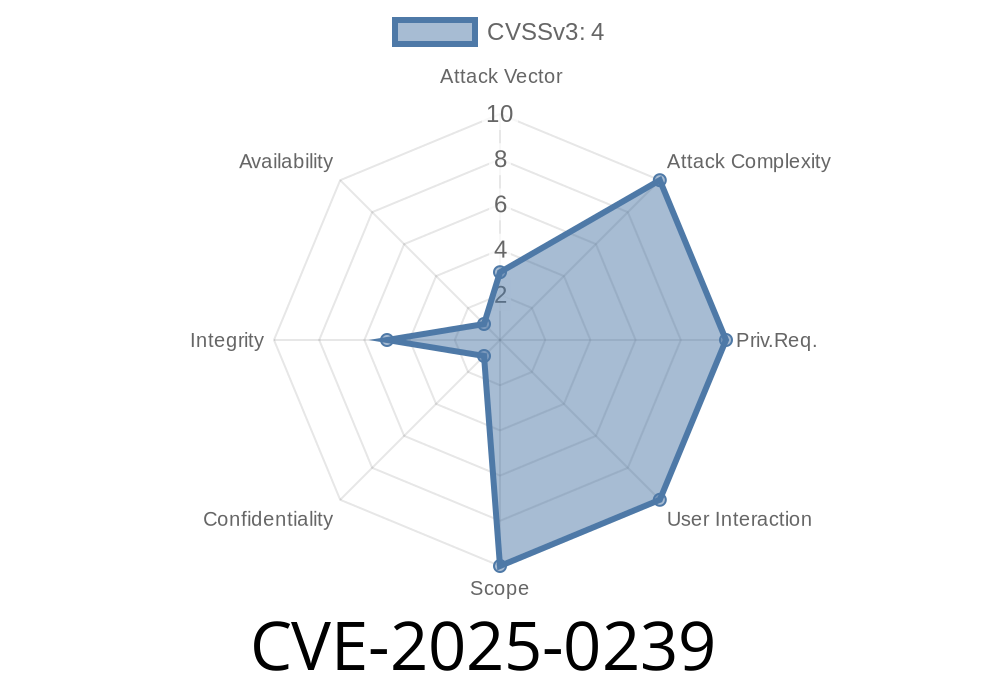In early 2025, a significant security bug surfaced in Mozilla Firefox and Thunderbird. Assigned CVE-2025-0239, this vulnerability highlights a risky flaw in certificate validation when using Alt-Svc and ALPN protocols. Below, we break down what went wrong, how attackers might exploit this issue, and what you should do to stay secure.
What is Alt-Svc and ALPN?
- Alt-Svc (“Alternative Services”) lets a web server tell your browser that the content you’re getting could also be delivered by another server or protocol—sometimes for speed or efficiency.
- ALPN stands for Application-Layer Protocol Negotiation. It’s a way for browsers and servers to agree on what protocol to use (like HTTP/2) during a TLS handshake.
Using these together, a website could say, “Hey, your main page is served over HTTPS, but here’s a faster version on another server!” Your browser is supposed to make sure this “other server” is just as secure.
The Flaw in Simple Terms
Normally, when your browser is redirected (via Alt-Svc) to another host, it checks that the new server has a valid HTTPS certificate matching the original. Due to the bug in CVE-2025-0239, this extra check didn’t happen correctly if an insecure site was involved.
If an original server redirected you through Alt-Svc to a server using an insecure or mismatch certificate, your browser/Thunderbird might accept it without complaint.
Why is This a Big Deal?
This flaw weakens HTTPS security guarantees. If an attacker can control a redirection—say through a compromised or malicious server—they could redirect your traffic to an insecure or impersonated web service. This breaks the trust you expect from "secure" browsing.
Inject malicious code into otherwise secure pages
- Impersonate legitimate websites/services
Let's say you visit https://safe.example.com, which supports Alt-Svc. The server responds with
Alt-Svc: h2="evil.example.net:443"
Your browser now tries to connect to evil.example.net via HTTP/2 (h2). If evil.example.net offers a bad or mismatched certificate, Firefox should block it. Due to this vulnerability, it might not.
Host an HTTPS service on attacker.com, but with a self-signed or stolen certificate.
3. User’s vulnerable Firefox/Thunderbird accepts the new host for secure content, skipping strict matching validation.
Here’s a basic pseudo-snippet of what might happen in the browser
def handle_alt_svc(alt_svc_header, original_hostname):
new_host = parse_alt_svc(alt_svc_header)
if alpn_negotiated():
# Vulnerable: Missing strict cert matching for original
if not validate_certificate(new_host):
warn_user()
else:
connect(new_host)
else:
connect(original_hostname)
The proper fix is to ensure validate_certificate(new_host) checks the certificate against the original host’s name and CA trust chain, not just “is it any-HTTPS?”.
Mozilla Security Advisory:
MFSA-2025-15 (official write-up on the issue)
Bugzilla Tracking:
Bug 1880472 - Alt-Svc certificate validation flaw
Explainer:
Mozilla Developer Docs on Alt-Svc
How Was It Fixed?
Mozilla updated the logic in the affected applications to make sure ALPN, Alt-Svc, and certificate validation are handled as a *single chain of trust*. If the new service doesn't fully match the security of the original, the connection is blocked.
Upgrade to Firefox >= 134 or Thunderbird >= 134—or newer Thunderbird ESR/Firefox ESR—to get the patch.
Update Now: Upgrade to the latest Firefox or Thunderbird.
- Server Admins: Don’t use Alt-Svc to redirect secure services unless replacement services provide identical certificate and protocol security.
- Security Teams: Scan networks for Alt-Svc headers and test with mismatched certificates to confirm no vulnerable clients remain.
Conclusion
CVE-2025-0239 is a prime example of subtle bugs in protocol negotiation that can have big security impacts. By promptly updating your browsers and email clients, and by understanding how alternative service negotiation works, you help keep the Internet a safer place.
Stay patched—and stay sharp!
*If you want more technical details, review the actual patch in Mozilla’s codebase and the full disclosure on Mozilla’s advisory portal.*
Timeline
Published on: 01/07/2025 16:15:38 UTC
Last modified on: 01/13/2025 22:15:15 UTC
